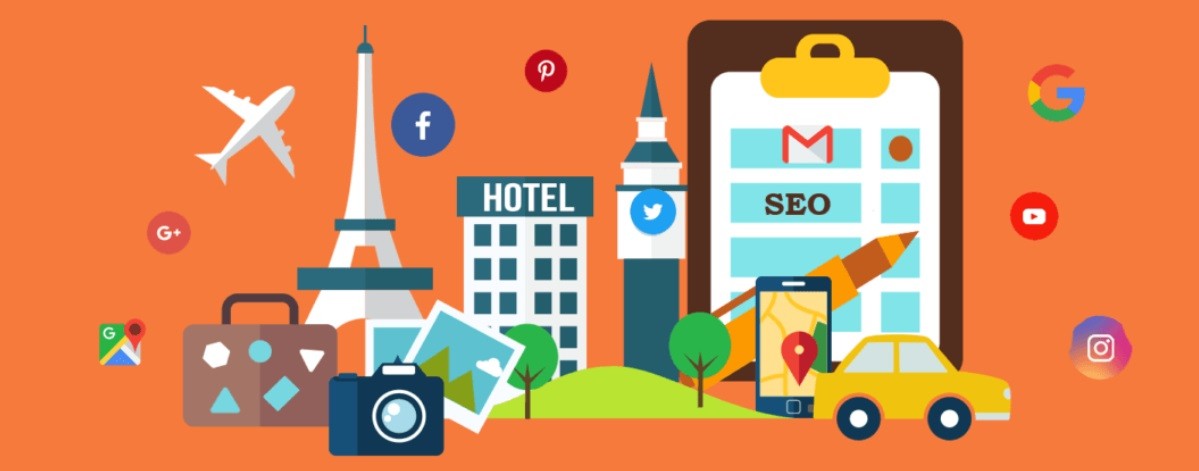Hello!
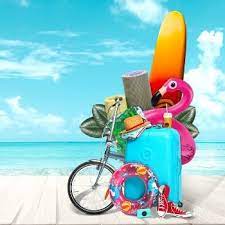 Marketing for the hospitality and tourism industries is challenging, as it must appeal to potential customers from around the world.
Marketing for the hospitality and tourism industries is challenging, as it must appeal to potential customers from around the world.
But marketing strategies that focus on making things easier for customers, creating memorable experiences, and engaging with them on social media can help hospitality and tourism businesses stand out from their competition.
That’s why this guide will look at 10 ways you can market your hospitality and tourism business effectively.
What is Hospitality and Tourism Marketing?
Hospitality and tourism marketing creates awareness about a hospitality or tourism business and its products, services, and offerings. It involves identifying potential customers, understanding their needs, targeting them with offers, and building relationships with customers to ensure repeat visits or bookings. When your marketing strategy is effective, you can create a positive impression and boost sales.
Usually, tourism marketing focuses on a particular product or service, and the goal is to increase customer visits. And hospitality marketing focuses more on the overall experience of staying at a hotel or resort, and the goal is to create strong customer relationships. As the hospitality industry constantly changes and customer expectations evolve, marketers must stay up to date with the trends to create effective marketing strategies.
What are the Benefits of Hospitality and Tourism Marketing?
Before we look at the 10 ways you can market your hospitality and tourism business, let’s take a look at the benefits of doing so.
Increased awareness
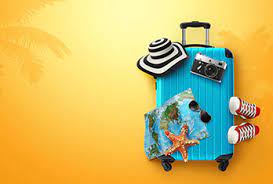 A successful marketing strategy will create awareness about your hospitality or tourism business. People will become familiar with your brand and recognize it, creating a loyal customer base. In hospitality marketing, this is especially important as people are looking for experiences, not just products.
A successful marketing strategy will create awareness about your hospitality or tourism business. People will become familiar with your brand and recognize it, creating a loyal customer base. In hospitality marketing, this is especially important as people are looking for experiences, not just products.
They want the best hospitality services, and you must ensure that your business is top of mind when making their purchases. Suppose you have a hotel.
You want to ensure that potential customers know about your services and amenities. And when they are ready to make their booking, you want them to choose your hotel.
While the hospitality and tourism education program can help you provide quality customer services, marketing your business will ensure that potential customers are aware of the services you offer.
More sales
 Marketing is all about creating awareness and driving sales. When people become familiar with your brand, they are more likely to purchase from you. They know what they can expect from your hospitality or tourism business and will be more likely to make a purchase.
Marketing is all about creating awareness and driving sales. When people become familiar with your brand, they are more likely to purchase from you. They know what they can expect from your hospitality or tourism business and will be more likely to make a purchase.
This is especially true for travel businesses, as people look for the best prices and experiences when planning their trips.
By marketing your services, you can reach out to potential customers and convince them to book with you.
The sales and marketing executives will create offers and promotions to entice potential customers and ensure that your business is top of mind. The trainers marketing excellence award can also help you gain recognition and credibility in the hospitality industry.
Improved customer service
You can also provide better customer service when you market your hospitality or tourism business. You can use your marketing campaigns to highlight the features and benefits of your services. This will help customers make informed decisions and choose the right products or services.
 You can also use marketing campaigns to inform customers about any new developments in your hospitality or tourism business. This will improve customer satisfaction and build loyalty.
You can also use marketing campaigns to inform customers about any new developments in your hospitality or tourism business. This will improve customer satisfaction and build loyalty.
With an influential hospitality management faculty, you can also improve the quality of customer service, as they can provide insights into customer preferences and trends.
Similarly, in global marketing practices, you can analyze customer data and develop targeted campaigns to improve the customer experience.
Increased brand recognition
Marketing your hospitality or tourism business will also help you increase the recognition of your brand. Through marketing campaigns, you can create a consistent and recognizable image for your business. This will help customers recognize and remember your brand, making it easier to convert potential customers into loyal patrons.
Access to new markets
 Marketing your hospitality or tourism business can also help you expand into new markets. By targeting specific audiences with tailored campaigns, you can reach out to potential customers unaware of your services.
Marketing your hospitality or tourism business can also help you expand into new markets. By targeting specific audiences with tailored campaigns, you can reach out to potential customers unaware of your services.
This will give you access to new markets and opportunities for growth. Different countries also have different regulations and practices regarding hospitality, so it is important to research these before expanding into new areas.
Unlike contemporary hospitality marketing, which focuses on the digital marketing world, you should also consider traditional methods for marketing, such as print and radio.
What are the Challenges of Hospitality and Tourism Marketing?
There are many benefits to marketing your hospitality or tourism business, but there are also some challenges.
Cost
Marketing can be expensive, and it can take a while to see the return on your investment. To get the most out of your marketing efforts, you need to ensure that you target the right audience and use the right channels. If you are unsure where to start, getting advice from an experienced marketing expert can be useful. Just as in health care services marketing, you need to consider the marketing cost against the return it will bring.
Keeping Up with Trends
 The hospitality and tourism industry is constantly evolving, so it’s important to keep up with the latest trends to stay competitive. This means keeping a close eye on social media, monitoring customer reviews, and staying up to date with the latest industry news.
The hospitality and tourism industry is constantly evolving, so it’s important to keep up with the latest trends to stay competitive. This means keeping a close eye on social media, monitoring customer reviews, and staying up to date with the latest industry news.
When hotel and restaurant management students study the hospitality and tourism industry, they should also consider insights into marketing trends.
For both an international reputation and local recognition, you need to be able to innovate and adapt quickly to stay ahead of the competition. In graduate student research conference, you should also ensure that your marketing campaigns are relevant and up to date.
Lack of Control
Marketing can be unpredictable, and you may not always have control over the response you get. It’s important to be prepared for positive and negative feedback, as this can help you identify areas that need improvement. Suppose you’ve done a marketing campaign on a particular platform, and the results have not been what you had hoped for. Looking at the campaign and adjusting it according to what you’ve learned from the results is important.
Time
 Marketing requires time and effort, so it is essential to manage your resources effectively to get the most out of your efforts. This includes setting aside time to monitor your campaigns and analyze the results.
Marketing requires time and effort, so it is essential to manage your resources effectively to get the most out of your efforts. This includes setting aside time to monitor your campaigns and analyze the results.
When marketing a hospitality or tourism business, it’s important to focus on the quality of your content rather than quantity.
That way, you can ensure that you provide the most relevant and engaging content for your audience.
10 Ways To Do Marketing for Hospitality and Tourism
Now that you are familiar with some of the challenges associated with hospitality and tourism marketing let’s look at 10 ways you can do marketing for your business.
1. Develop an Online Presence
 Creating a strong online presence is key in marketing a hospitality or tourism business. This includes having a website, engaging on social media platforms, and optimizing your website for search engine results. Having an active and attractive presence on the web will help you reach more potential customers and better engage with them.
Creating a strong online presence is key in marketing a hospitality or tourism business. This includes having a website, engaging on social media platforms, and optimizing your website for search engine results. Having an active and attractive presence on the web will help you reach more potential customers and better engage with them.
Different types of online content include:
- Videos: Creating short and informative videos about your business can help you reach more customers and build trust with them.
- Blogs: Writing regular blog posts about your business, its culture, and the local area can be a great way to engage with potential customers.
- Graphics/Photography: Images are often used to express emotion and create a connection with customers. High-quality images of your business and your services can help draw potential customers’ attention.
2. Utilize Digital Advertising Platforms
Another way to market your hospitality or tourism business is through digital advertising platforms such as Google Ads or Facebook Ads. You can target potential customers and reach them in real time with relevant content through these platforms. Creating ads that are visually appealing, informative, and to the point can help you draw attention from potential customers.
 Some tips that may help you create successful digital ads include:
Some tips that may help you create successful digital ads include:
- Research your target audience to understand their interests and needs.
- Ensuring your design is attractive and consistent with your brand’s messaging.
- Crafting compelling copy that will capture the attention of potential customers and make them want to learn more about your business.
- Tracking and analyzing your campaigns to identify what’s working and isn’t.
3. Leverage Influencers
Influencer marketing can be an effective way to reach potential customers who are interested in hospitality and tourism services. Working with influencers who specialize in the industry can help you reach more people, build trust with potential customers, and generate more leads. When working with influencers, research their followers and authentically engage with potential customers. As the hospitality and tourism industry is highly visual, influencer marketing can be a great way to showcase your products and services engagingly.
4. Invest in Content Marketing
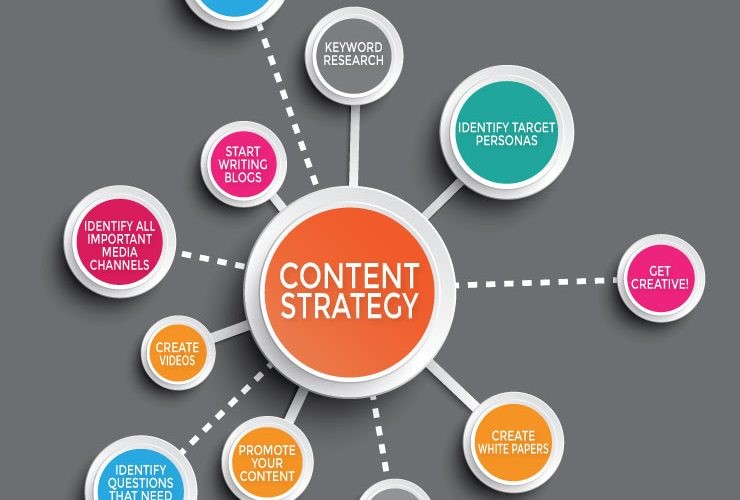 Content marketing is another great way to market your hospitality or tourism business.
Content marketing is another great way to market your hospitality or tourism business.
Creating content such as blog posts, videos, podcasts, ebooks, and whitepapers can help you reach a wider audience and build trust with potential customers.
Creating content relevant to the hospitality and tourism industry can help you stand out from competitors and attract interested customers.
Quality content marketing can also help you generate more leads, increase website traffic, and boost conversions. You may also utilize the hospitality and tourism literature to support content marketing efforts.
5. Participate in Events
Participating in industry events and conferences can be a great way to promote your hospitality or tourism business. These events provide an opportunity to network with industry professionals, gain invaluable insights and increase brand visibility.
Additionally, attending these events can help you build relationships with potential customers and stay up to date on industry developments. Taking advantage of both virtual and in-person events can be an effective way to market your hospitality or tourism business.
6. Leverage Social Media
 Social media is an important tool for marketing your hospitality or tourism business. Utilizing platforms like Facebook, Instagram and Twitter can help you reach a larger audience and engage with potential customers in real-time.
Social media is an important tool for marketing your hospitality or tourism business. Utilizing platforms like Facebook, Instagram and Twitter can help you reach a larger audience and engage with potential customers in real-time.
Posting high-quality content that resonates with your target audience can effectively drive traffic to your website and help you build relationships with potential customers. Additionally, using hashtags related to your industry can help you reach more people and increase engagement.
7. Utilize Email Marketing
Email marketing is another great way to market your hospitality or tourism business. Email campaigns informing potential customers of special offers, discounts, and new services can effectively boost engagement and build relationships with your customers. Additionally, email marketing can be a great way to measure the success of your other marketing efforts since you’ll have a better idea of how many people are clicking through to your website or taking advantage of special offers.
8. Focus on Search Engine Optimization (SEO)
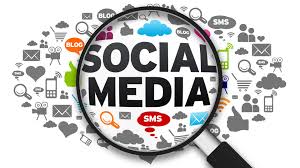 Search engine optimization (SEO) can effectively drive traffic to your website and improve your visibility in search engines. Incorporating keywords into the web page content and ensuring search engine crawlers easily index all pages can help you rank higher on search results. Suppose you are looking for a hotel in a certain city. If your website has been optimized with the correct keywords, it is more likely to appear at the top of the search engine results page (SERP).
Search engine optimization (SEO) can effectively drive traffic to your website and improve your visibility in search engines. Incorporating keywords into the web page content and ensuring search engine crawlers easily index all pages can help you rank higher on search results. Suppose you are looking for a hotel in a certain city. If your website has been optimized with the correct keywords, it is more likely to appear at the top of the search engine results page (SERP).
Additionally, linking back to other industry websites or having them a link to yours can also improve rankings over time.
9. Leverage Online Reviews and Testimonials
Online reviews and testimonials can be an effective way of building trust with potential customers. Customer reviews act as a form of social proof about the quality of your services and provide feedback to help you further improve customer satisfaction.
Encourage customers to write reviews on popular platforms such as TripAdvisor or Yelp and offer incentives if so. You can also feature previous customers’ positive experiences and reviews on your website or social media pages. This will help create a perception of trustworthiness and give potential customers an idea of what to expect from your services.
10. Consistently Monitor Your Progress
 Finally, you need to monitor the progress of your marketing efforts continuously. Regularly checking in on website engagement, email campaigns, and other marketing activities can help you identify areas that require improvement.
Finally, you need to monitor the progress of your marketing efforts continuously. Regularly checking in on website engagement, email campaigns, and other marketing activities can help you identify areas that require improvement.
You can also track website analytics from platforms such as Google Analytics to find out what kind of content resonates with your audience and where they come from.
Doing this will help you make informed decisions about which strategies work best and how to adjust your approach accordingly. By keeping an eye on the results, you can ensure that your marketing efforts successfully drive awareness and conversions for your hospitality or tourism business.
Also read:
- How to Choose The Best VPN Service for Your Needs in 2025
- Latest Technologies and Innovation for Future
- It’s now free to Sell on Google
Closing Thoughts About Marketing for Hospitality and Tourism
 Marketing for hospitality and tourism is an important part of staying competitive in today’s market. By utilizing the above strategies, you can reach a larger audience, generate more leads, and improve your overall visibility.
Marketing for hospitality and tourism is an important part of staying competitive in today’s market. By utilizing the above strategies, you can reach a larger audience, generate more leads, and improve your overall visibility.
However, it is important to remember that none of these strategies work alone—you need to have a comprehensive approach if you want to maximize the effectiveness of your marketing efforts.
Consistently monitoring your progress and adjusting your approach accordingly can help you stay ahead of the competition and position yourself as an industry leader.
So, last, don’t forget to include marketing for hospitality and tourism as part of your overall business strategy. When done correctly, it can be a powerful tool for driving growth and success. Good luck!
Thank you!
Join us on social media!
See you!

